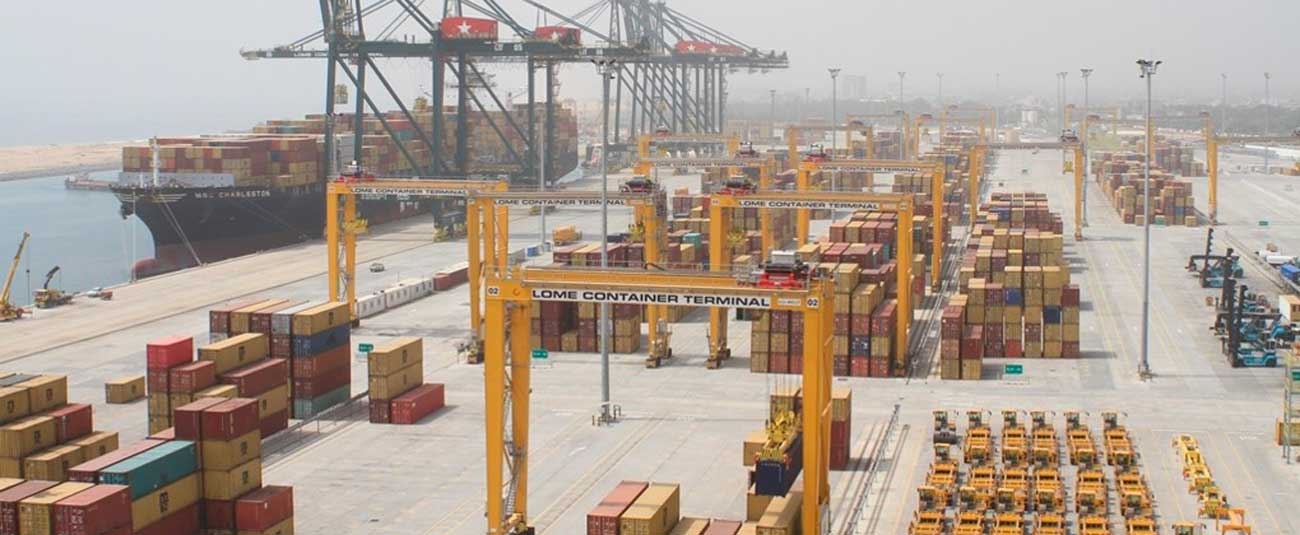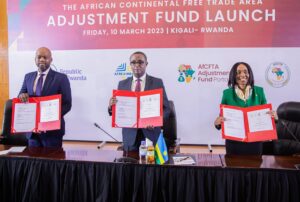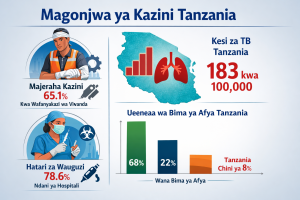
The AfCFTA’s Private Sector Investment Framework in Motion, a lesson for the East African Community
A Single African Market Agenda
Africa is still coming to terms with the promise of the African Continental Free Trade Agreement (AfCFTA) to create a single continental market with a population of 1.3 billion people and a combined GDP of US$3.4 trillion. The framework has set in motion a significant economic transformation across the continent, and its impact extends beyond merely reducing tariffs and trade barriers. One of the key elements that can be particularly instructive for the East African Community (EAC) is the AfCFTA Private Sector Investment and Financing Framework launched in 2019. This framework provides valuable lessons on how to harness the potential of regional businesses to accelerate cross-border trade and create a single East African market.
Working with the Private sector
The framework has been instrumental in generating financing for various initiatives under the supranational organization to accelerate the movement towards enhanced intra-African trade under a single continental market. The AfCFTA is set to rely on the investment and financing framework to trigger the mobilization of at least $1 trillion to finance investments in infrastructure and industrialization. The Afrochampions under the initiative are further set to drive the continent’s capital access capabilities to attract more foreign and domestic capital.

To date, the collaboration between the AfCFTA and private sector players within the continent has led to significant financing leaps to support trade and business activity toward creating a single shared market. In March 2023, the AfCFTA signed a deal with the Afreximbank committing US$1 billion to the US$10 billion adjustment fund and providing a US$10 million seed grant to support the initiative. Later in June 2023, Africa’s Global Bank, United Bank for Africa (UBA) signed an agreement with the AfCFTA secretariat to provide financing for up to US$6 billion over the next 3 years to support SMEs across Africa. Earlier in 2022, the African Development Bank (AFDB) approved a $11 million support package to the AfCFTA to enhance its effective implementation of programs, and tools, and to raise stakeholder awareness. The collaborative move with the private sector provides valuable lessons for the EAC in collaborating with the sector to enhance its regional integration and economic growth.
Lesson Learnt, Borrow a Page
One of the fundamental lessons from the AfCFTA Private Sector Investment and Financing Framework is the importance of fostering collaborative partnerships between governments and the private sector. Each of the EAC partner states has developed a Private Sector Development Agency and a Consultative Dialogue Framework at the regional level to enhance streamlining of issues impacting trade and business. The EAC can benefit from the realization that, while eliminating tariff and non-tariff barriers is a key component for cross-border trade, infrastructure and ancillary investment are equally critical to liberalizing trade. Beyond that, the EAC can benefit greatly from this lesson by actively engaging with local businesses and regional corporations to jointly develop strategies to fund its trade and regional integration dream. Governments and the private sector in the region can align their interests and goals, leading to more effective policy development, infrastructure investment, and trade facilitation.
Several private sector bodies, including National associations, the Eastern Africa Association, the East African Chamber of Commerce, Industry, and Agriculture, and the East African Business Council are the community’s for the taking. The AfCFTA framework encourages the identification of priority sectors with the most potential for growth and integration. Similarly, the EAC should work with regional businesses to determine which industries have the most significant cross-border trade potential. These priority sectors could include agriculture, manufacturing, technology, and financial services. Among other trade elements, funding should be a key consideration in the relationships to foster regional trade and economic development.
The 170 million people within the EAC have created a window for cross-border trade expansion nurturing homegrown multinationals particularly under the region’s Common Market Protocol. Notable names include Kenya’s Safaricom and Equity Bank, Tanzania’s Vodacom and CRDB Bank, and Uganda’s MTN hold significant potential as partners in the region’s trade and integration development agenda. To successfully promote cross-border trade, the EAC should leverage the resources and expertise of these regional businesses.
The AfCFTA framework offers valuable lessons on how to mobilize private sector resources effectively. This can involve securing funding, technology transfer, and knowledge sharing to drive infrastructure development and trade-related projects. Private sector organizations, like Equity Bank and Safaricom, can provide funding, expertise, and technology solutions to support the EAC’s goals of creating a single East African market. Governments should actively encourage these partnerships and provide incentives for businesses to invest in regional integration efforts.
The AfCFTA framework encourages the identification of priority sectors with the most potential for growth and integration. Similarly, the EAC should work with regional businesses to determine which industries have the most significant cross-border trade potential. This also includes working closely with the private sector to identify regulatory barriers that hinder trade and collaboratively develop solutions to remove these impediments. Streamlining regulations will reduce the cost of doing business across borders and enhance the ease of trade within the region.
Cross-border trade requires a skilled workforce. The EAC should take a page from the AfCFTA framework and work with the private sector to support education and training initiatives. This includes programs that provide vocational training, internships, and apprenticeships to equip the labor force with the necessary skills for cross-border trade. Local and regional businesses can play an active role in these initiatives by offering training and mentorship opportunities. By investing in human capital, the EAC will ensure that its workforce is well-prepared to take advantage of the opportunities presented by a single East African market.
Regional businesses, especially those with a strong presence in the EAC like Equity Bank and Safaricom, can help local companies access new markets. The EAC should collaborate with these businesses to facilitate market entry, promote East African products, and provide export-related support. Private sector companies can use their existing networks and expertise to help East African businesses expand into regional and international markets. This collaboration will enhance market access and create more opportunities for cross-border trade.
The AfCFTA Private Sector Investment and Financing Framework provides invaluable lessons for the East African Community on how to tap into businesses within the region to accelerate cross-border trade and create a single East African market. By adopting these lessons, the EAC can unlock the full potential of regional integration, drive economic growth, and improve the livelihoods of its citizens. The AfCFTA framework exemplifies the transformative power of public-private collaboration, and the EAC has a unique opportunity to harness this power for the benefit of its member states and the broader East African region.
Muoki Musila is an Kenyan based economist. These are the writer’s own opinions and do not necessarily reflect the viewpoints of Liberty Sparks. Do you want to publish in this space? Contact our editors at [email protected] for further clarification.



